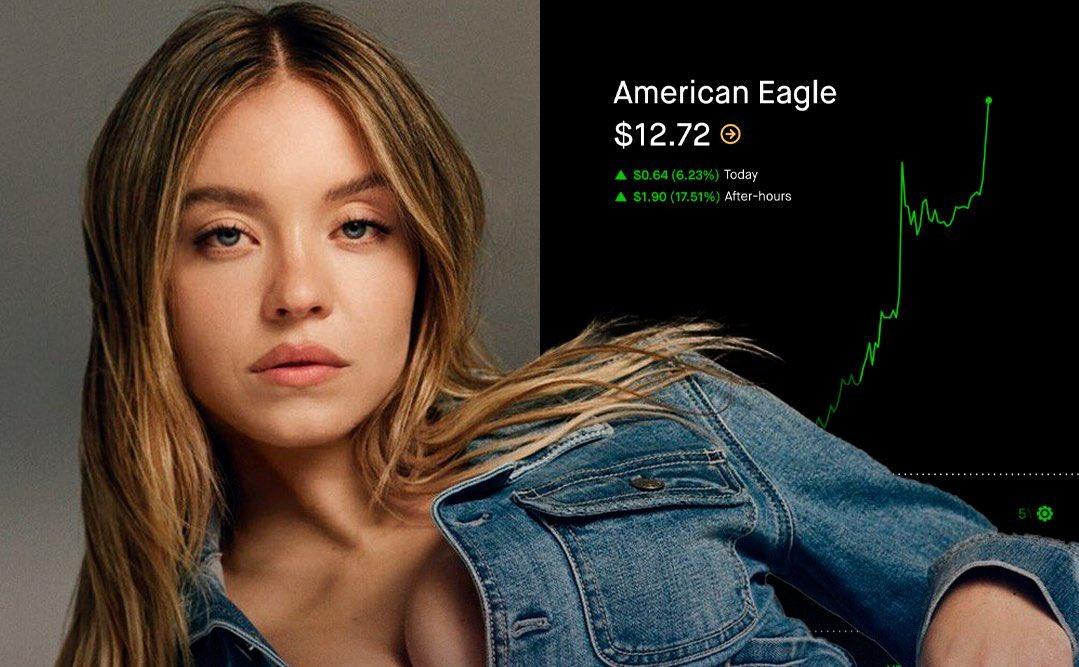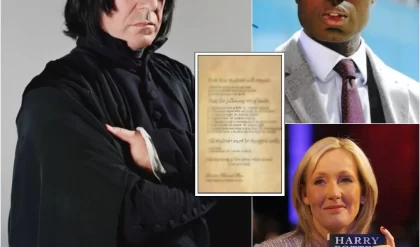Sydney Sweeney’s American Eagle Ad Campaign Sparks Outrage Over Alleged Eugenics Messaging
Sydney Sweeney, the 27-year-old star of HBO’s Euphoria and The White Lotus, has found herself at the center of a cultural firestorm following the release of American Eagle’s latest ad campaign, provocatively titled “Sydney Sweeney Has Great Jeans.” The campaign, launched on July 25, 2025, aimed to promote the retailer’s fall denim collection with a playful wordplay on “jeans” and “genes.” However, what was intended as a cheeky marketing move has ignited a fierce online debate, with critics accusing the campaign of promoting eugenics—a discredited pseudoscience historically tied to racial superiority and selective breeding. As social media platforms like TikTok, X, and Threads buzz with outrage, the controversy reveals a deeper cultural rift over beauty standards, identity politics, and the responsibility of brands in today’s polarized climate.

The campaign features Sweeney in a series of retro-styled videos and images, sporting slouchy denim and exuding a sultry, all-American charm. In one promotional clip, Sweeney leans into the camera, saying, “Genes are passed down from parents to offspring, often determining traits like hair color, personality, and even eye color. My jeans are blue.” The camera pans to her striking blue eyes, underscoring the pun. Another video shows Sweeney standing before a billboard that reads “Sydney Sweeney Has Great Genes,” only to cross out “genes” and replace it with “jeans.” American Eagle described the campaign as a “return to essential denim dressing” that celebrates Sweeney’s “girl next door charm and main character energy.” Yet, the wordplay has struck a nerve, with many online calling it tone-deaf and insensitive.
Critics argue that the campaign’s focus on Sweeney’s blonde hair, blue eyes, and “great genes” evokes eugenics, a movement that gained traction in early 20th-century America and was infamously embraced by Nazi Germany to promote an Aryan “master race.” Sayantani DasGupta, a professor of Narrative Medicine at Columbia University, analyzed the ads in a viral TikTok post, stating, “This campaign is imbued with eugenic messaging. It’s both a testament to this political moment and reinforcing an anti-immigrant, pro-eugenic narrative.” DasGupta’s critique resonated widely, amassing thousands of likes and shares. Similarly, Kean University professor Robin Landa told Newsweek, “The phrase ‘good genes’ was once central to American eugenics ideology, which promoted white genetic superiority and enabled the forced sterilization of marginalized groups. Careless wordplay risks normalizing exclusionary beliefs.”

The backlash has been amplified by the current U.S. political climate, where diversity, equity, and inclusion (DEI) initiatives are under scrutiny. On X, one user wrote, “Getting a blue-eyed, blonde, white woman and focusing your campaign around her perfect genetics feels weird, especially considering the state of America right now.” Another TikTok creator, Jeff Kissubi, remarked, “When eugenics started in America, it centered whiteness as the ideal. This ad’s wordplay subtly mirrors far-right themes, and in a country where identity is weaponized, the reaction is valid.” The hashtag #SydneySweeneyControversy trended briefly, with parody videos, including one by musician Doja Cat mocking the “good genes” monologue, adding fuel to the discourse.
However, not all reactions have been critical. Some defend the campaign as a clever marketing ploy or dismiss the outrage as overblown. Conservative figures have seized the moment to frame the backlash as evidence of “woke” overreach. Senator Ted Cruz posted on X, “Wow. Now the crazy Left has come out against beautiful women. I’m sure that will poll well.” Former Fox News host Megyn Kelly chimed in, writing, “The leftist meltdown over Sydney Sweeney’s ad has only given a beautiful white blonde girl with blue eyes 1000x the exposure for her ‘good genes.’” On Threads, user @ashbart90 argued, “This outrage is so stupid. It’s just marketing, not a dog whistle. Stop making us look bad.” These defenses highlight a counter-narrative that views the campaign as a rejection of politically correct advertising, with some praising it as a return to “American exceptionalism.”

The controversy draws parallels to past advertising scandals, notably Brooke Shields’ 1980 Calvin Klein campaign, where the then-15-year-old model’s suggestive “Nothing comes between me and my Calvins” line sparked outrage for sexualizing a minor. Like Shields’ ads, Sweeney’s campaign leans into provocative imagery and wordplay, a tactic marketing expert Allen Adamson of Metaforce says is deliberate. “The nature of these ads is one of the few ways companies break through the noise today. They won the attention game,” Adamson told NPR. Indeed, American Eagle’s stock surged by up to 15% following the campaign’s release, suggesting that controversy translates to commercial success.
Adding complexity, the campaign includes a charitable component. “The Sydney Jean,” a limited-edition denim style designed with Sweeney, features a butterfly motif symbolizing domestic violence awareness—a cause Sweeney has publicly supported. All proceeds from the $89.95 jeans go to Crisis Text Line, a nonprofit offering 24/7 mental health support. Yet, this altruistic angle has been overshadowed by the eugenics debate. Amelie Burgess, a senior lecturer at the University of Adelaide’s Business School, told the Sydney Morning Herald, “It’s unlikely American Eagle deliberately provoked this. The misstep likely came from a lack of diversity in the marketing team. It’s not a smart business move or a good societal one.”
Neither Sweeney nor American Eagle has publicly addressed the backlash as of July 31, 2025, despite requests for comment from outlets like The Guardian and Vanity Fair. Sweeney’s silence may stem from her past experiences with political controversies, such as the 2022 uproar over photos from her mother’s birthday party where guests wore MAGA-style hats. At the time, Sweeney clarified on X, “An innocent celebration was turned into an absurd political statement, which was not the intention. Please stop making assumptions.” Her reluctance to engage now suggests a cautious approach to navigating the polarized discourse.
The Sweeney saga underscores a broader cultural tension. As Hannah Holland wrote on MSNBC, “Advertisements are mirrors of society, and sometimes what they reflect is ugly and startling. This campaign fits into an unbridled shift toward whiteness, conservatism, and capitalist exploitation.” Yet, others see it as a backlash against the perceived excesses of “woke” culture. Paul Burke of The Spectator praised the ad, writing, “A new generation of advertisers is rebelling against the stifling sanctimony of their elders.” The polarized reactions reveal how a simple denim ad can become a lightning rod for debates about race, identity, and the power of words.
As the internet continues to dissect Sweeney’s “great jeans,” the controversy raises pressing questions about the role of brands in shaping cultural narratives. Was the campaign a misjudged pun or a calculated move to court attention? Regardless, it has succeeded in making American Eagle—and Sydney Sweeney—impossible to ignore. For now, the denim may be blue, but the conversation is anything but black-and-white.





